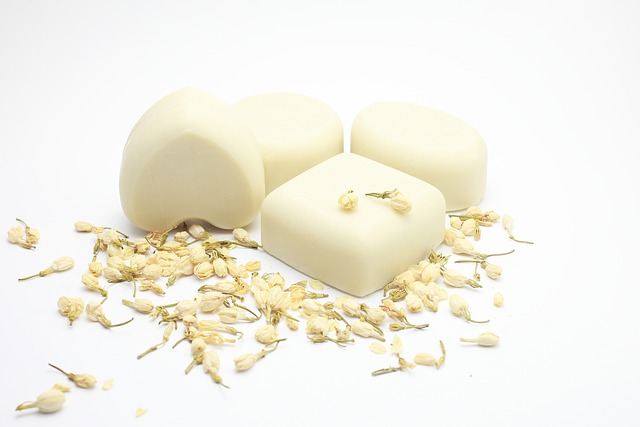Skin is an integral part of our beauty, and plays an important role in how we feel about ourselves. Healthy, glowing skin can make us feel confident, radiant, and beautiful. However, factors such as aging, sun exposure, and stress can take a toll on our skin, causing wrinkles, fine lines, dark spots, and dullness.
To maintain beautiful skin, it is important to follow a skin care routine that includes cleansing, moisturizing, exfoliating, and protecting from sun damage. It is also important to lead a healthy lifestyle that includes a well-balanced diet, plenty of water, regular exercise, and adequate sleep. With proper care, your skin can be an epitome of beauty that reflects your health and well-being. Taking care of your skin is essential not only to its bodily functions but also to your emotional well-being by:
1. Protection: Your skin acts as a barrier that protects your body from external factors such as sun, wind, and pollutants.
2. Self-repair: Your skin can heal itself, which helps prevent infections and other skin problems.
3. Regulates body temperature: Your skin helps regulate your body temperature by producing sweat that cools you down and by constricting blood vessels which helps keep you warm.
4. The sensory organ: Your skin contains nerve endings that detect sensations such as pressure, pain, and temperature.
5. Reflect your overall health: The appearance of your skin can reflect your overall health. Healthy skin is usually clear, firm, and moist, while unhealthy skin may be dry, oily, or broken.
6. Boosts Self-Confidence: Having healthy, glowing skin can boost your self-confidence and improve your overall quality of life.
Steps to get healthy skin:
1. Hydration: Hydration is key to healthy skin. By drinking plenty of water and using a moisturizer every day, you can keep your skin hydrated. Aim to drink eight or more glasses of water each day.
2. Cleanse regularly: To remove makeup, dirt and oil from your skin, cleanse twice daily, before bed and in the morning. To prevent depriving your skin of its natural oils, use a mild cleanser.
3. Exfoliate: By exfoliating your skin regularly, you can remove dead skin cells, clean out clogged pores, and improve the appearance of your skin. Once or twice a week, use a gentle exfoliating scrub.
4. Protect your skin from the sun: Sun damage is one of the main causes of premature aging, so protect your skin from the sun. Even on cloudy days, use a broad-spectrum SPF of at least 30. Reapply every two hours if you spend a lot of time outdoors.
5. Get enough sleep: Sleep is essential to maintaining healthy skin. To reduce the appearance of puffiness and dark circles, aim for 7-8 hours of sleep each night.
6. Use a face mask: Masks are an excellent way to give your skin a boost. To moisturize and nourish your skin, use a moisturizing mask once a week.
7. Eat a balanced diet: Fruits, vegetables, and lean proteins are good for your skin. Berries and salmon are examples of foods rich in omega-3 fatty acids and antioxidants that can help protect and nourish your skin.
8. Reduce Stress: Reducing stress can help with skin problems like acne and wrinkles.
9. Avoid smoking: Try not to smoke because it accelerates the appearance of wrinkles and aging. To protect your skin, try to quit or at least cut down on smoking.
10. Avoid harsh skin care products: Your skin may become dry and irritated if you use harsh skin care products that deprive it of its natural oils. To avoid clogged pores, look for gentle products that won't clog pores.
11. Use Retinoids: Using retinoids helps reduce the appearance of fine lines, wrinkles, and age spots. Retinoids are vitamin A derivatives. Use products that contain retinoids, such as retinol or tretinoin, according to the instructions.
12. Try a facial oil: Facial oils are excellent for moisturizing and nourishing the skin. Apply a few drops of an antioxidant-rich oil, such as jojoba or argan oil, to your face before bed.
13. Massage your skin: Massaging your skin can improve blood flow and reduce the appearance of wrinkles. Use a jade roller or gua sha tool to massage your skin for a few minutes each day.
14. Practice good hygiene: Wash your pillowcases and towels regularly to reduce the build-up of bacteria and oils on your skin. Wash your face before going to sleep to remove makeup and impurities.
15. Avoid touching your face: Touching your face can spread bacteria and oils, leading to breakouts. Try to avoid touching your face as much as possible.
16. Use a moisturizer: Dry air can leave your skin feeling dry and dehydrated. Use a humidifier in your bedroom to add moisture to the air and protect your skin.
17. Get regular facials: Regular facials can improve the appearance of your skin and help keep it healthy. Find a licensed dermatologist who can recommend the right treatment for your skin type.
18. Try a natural remedy: natural remedies for healthy and beautiful skin: apply aloe vera gel and honey.

Comments
Post a Comment